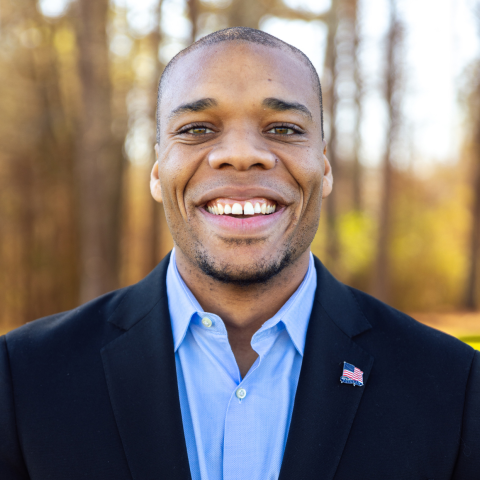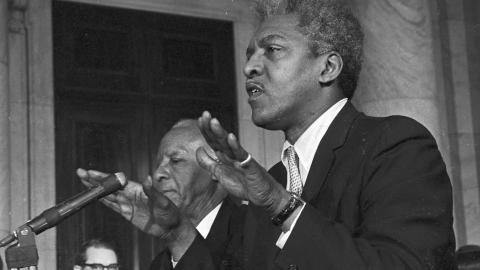Few of my father's sermons at my childhood church made mention of foreign affairs, but there was always one recurring exception: Israel. To my father and many Black ministers like him, it was our Christian duty to stand with Israel. The Bible was clear: God blesses those who bless Israel—and all Christians ought to pray for the peace of Jerusalem. And though my father had no problem presenting controversial topics that offended some congregants, this wasn't one of them. It was common for many Black churches to support the state of Israel and their right to self-defense.
Yet given the widespread anti-Israel fervor fomenting among many Black Americans today, it might be hard to believe that churches like mine still exist.
Just weeks after the horrific Hamas terrorist attacks, Black activists are doubling down against Israel. Several have released statements condemning Israel, as if the Israeli people should lay down their arms and pretend that the barbaric murder of 1,300 innocent people doesn't warrant a military response.
Other activists are downright supportive of Hamas. The official Chapter of Black Lives Matter in Chicago released a graphic of a paraglider accompanied by the text "I Stand with Palestine." The paraglider pictured is the type that Hamas terrorists used in their attack at the music festival in Southern Israel which killed hundreds of young Israelis. Earlier on the same day, another Black Lives Matter group released a statement supporting "the resistance" as an attempt to "tear down the gates of the world's largest open-air prison."
Still, there's another group of Black Americans also worthy of criticism: those choosing to remain silent. There are many who disagree with the rise in antisemitism but remain on the sidelines. These are people who might have attended churches like mine and privately support Israel but are too afraid to speak up publicly. Or even those without religious backgrounds who were disgusted by the terrorist attacks and secretly support Israel's right to defend itself. Either way, such individuals shouldn't allow cowardice to keep them from pushing back against the rising tide of antisemitism in Black communities.
In 1967, pro-Israel Black leaders were faced with a similar predicament. The Student Nonviolent Coordinating Committee (SNCC), the famed civil rights group, published a brazenly antisemitic article which referred to Israel as an "illegal state" and referenced several conspiracy theories against the Jewish people. In fact, the article included an illustration which depicted the hand of a Jewish person holding two nooses around the necks of Black men. And if you look closely at the hand, there's a tattoo of the star of David with a dollar sign inside of it—a common trope against Jews.
Once the article published, outrage ensued. Amid the chaos, two major Black civil rights leaders—A. Philip Randolph and Bayard Rustin—publicly condemned the antisemitism. In a statement published in the New York Times, they called the SNCC article "appalling." They even founded the Black Americans to Support Israel Committee (BASIC) and used their platform to support pro-Israeli causes.
Remarkably, even while Jim Crow discrimination still oppressed Blacks around the United States, these two leaders had the courage to rebuke evil within their own ranks and stand for justice.
History teaches us that the existence of antisemitism within Black communities isn't new. What's new is the lack of vocal opposition to it. Antisemitism has shifted from the fringes to the mainstream of Black culture. Louis Farrakhan, for example, has spewed vile rhetoric for decades, referring to Jewish people as "termites." Black leaders have condemned him routinely. Yet today, as younger Black activists employ antisemitic rhetoric, there isn't widespread pushback.
To be sure, not all have been silent. Former NBA star Amar'e Stoudemire posted an Instagram video calling out Black Lives Matter. New York City Mayor Eric Adams delivered a strong speech in support of the NYC Jewish community, declaring "antisemitism has no room in [NYC]." But public condemnations of antisemitism shouldn't be so few and far between.
America needs Black leaders who care more about standing against evil than potential backlash from the Black activist class. We need leaders who refuse to stay silent and look the other way as groups like Black Lives Matter promote terrorism. We need leaders shaped in the mold of Randolph and Rustin. And we need them now.















